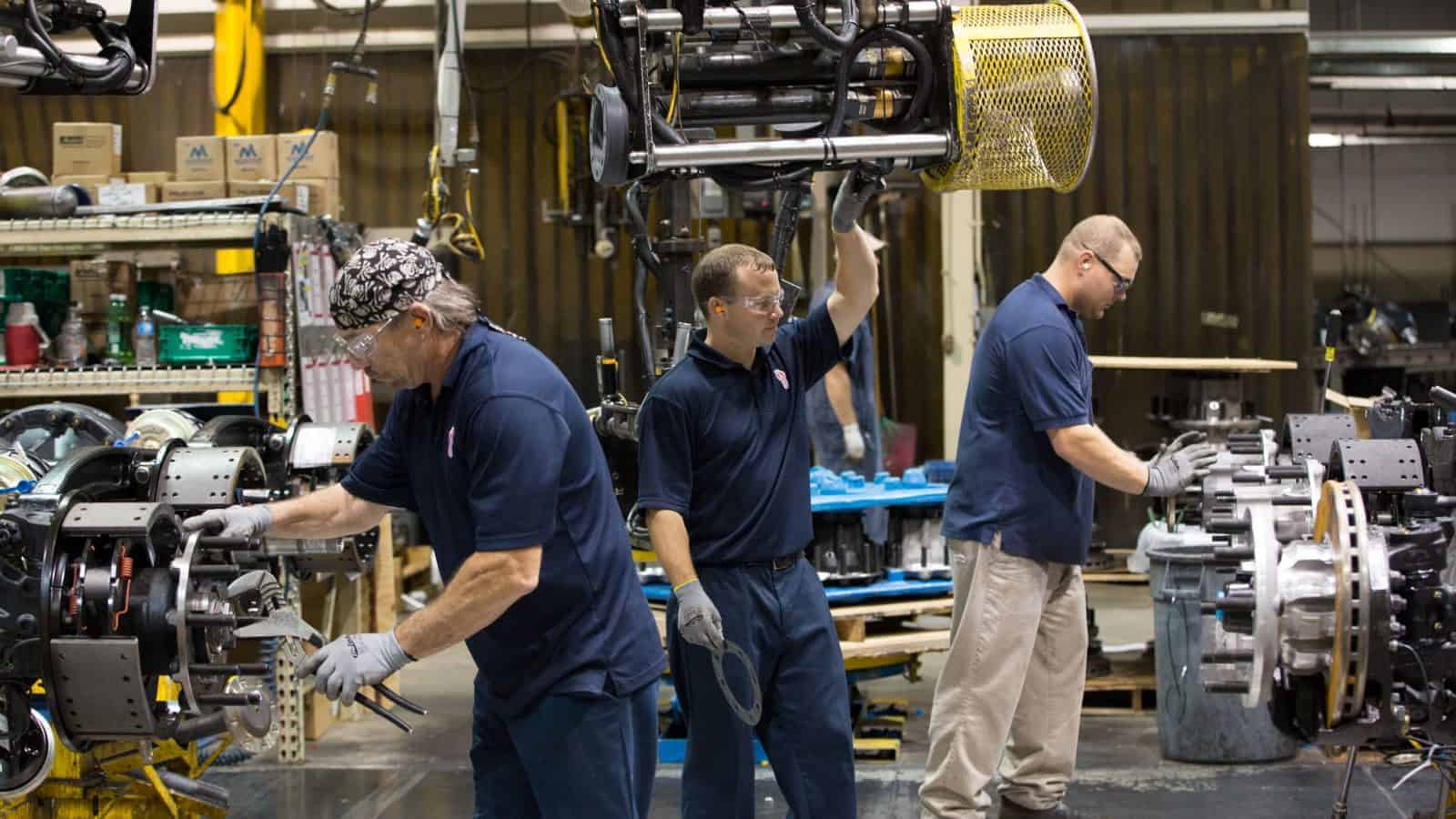Trump Imposes Secondary Tariffs on India

President Trump issued a new executive order imposing an additional 25% tariff on U.S. imports from India, in response to India’s continued purchase of Russian oil.
The background: In an EO issued March 8, 2022, shortly after Russia invaded Ukraine, the Biden administration prohibited U.S. imports of certain products from Russia, including crude oil, petroleum and related products.
- This new action cites that EO in imposing an additional ad valorem duty on imports from India, “which is directly or indirectly importing Russian Federation oil.”
Tariff stacking: The secondary tariffs are in addition to the 25% modified International Emergency Economic Powers Act reciprocal tariffs on India.
Timing: Secondary tariffs will take effect 21 days after the date of the EO, on Aug. 27.
- The EO includes an “on the water” exception for products loaded and in transit on the final mode of transit prior to that date and that enter the U.S. by Sept. 17.
Other details: The secondary tariff will not apply to goods subject to “existing or future actions under Section 232.”
- It will also not apply if the good is identified in Annex II to EO 14257 of April 2, 2025.
Further action? The EO suggests other countries purchasing Russian oil may become subject to similar secondary tariffs.
- It directs the Department of Commerce to coordinate with other agencies to “determine whether any other country is directly or indirectly importing Russian Federation oil,” and recommend whether to impose an additional 25% tariff on that country. Indirect importation is described as “through intermediaries or third countries.”
- Top importers of Russian oil—which the EO defines as both crude oil and petroleum products extracted, refined or exported from the Russian Federation—include China, Türkiye, Brazil and the European Union.
India responds: The government of India responded in an official statement: “It is extremely unfortunate that the U.S. should choose to impose additional tariffs on India for actions that several other countries are also taking in their own national interest.”
Manufacturing Employment Inches Downward

Manufacturing employment dipped slightly in May, losing 8,000 jobs on a seasonally adjusted basis, according to the monthly employment report from the Bureau of Labor Statistics. Nonfarm payrolls overall added 139,000 jobs last month.
The details: “The unemployment rate held at 4.2% in May and has remained in a narrow range of 4.0% to 4.2% since May 2024.”
- Meanwhile, nonfarm payrolls have averaged a monthly gain of 149,000 over the past 12 months, in line with the reading from May.
In manufacturing: “In manufacturing, the average workweek was little changed at 40.1
hours, and overtime was unchanged at 2.9 hours.”
- Meanwhile, average hourly earnings in manufacturing crept up from $35.11 in April to $35.28 in May on a seasonally adjusted basis.
The long view: Manufacturing employment has declined over the past year to date, yet remains above pre-pandemic levels, with 12,761,000 workers in May. The sector averaged 12,648,000 employees pre-pandemic (2017–2019).
The NAM says: “In order to support manufacturing growth and job creation in the U.S., manufacturers are calling on Congress to pass the One Big Beautiful Bill Act swiftly and make pro-manufacturing tax policies permanent,” said NAM Managing Vice President of Policy Charles Crain.
Americans Are Saving for Retirement at Record Rates

Americans are socking away a record amount in their retirement accounts (The Wall Street Journal, subscription).
The details: “The average savings rate in 401(k) plans rose to a record high 14.3% of income in the first three months of this year, according to a Fidelity Investments analysis of the millions of accounts it manages.”
- That’s almost as much as the 15% annual savings rate that financial advisors recommend.
Upward trend: Average savings rates have increased from 13.5% in 2020.
- Meanwhile, older savers are putting in more than younger ones: “At Fidelity, baby boomers saved 17.2% on average, while generation X and millennials put away 15.4% and 13.5%, respectively.”
More 401(k)s: “About 70% of the private-sector workforce now has access” to a 401(k)—and many more companies are using automatic enrollment to increase participation.
Still at risk: However, “About 40% of U.S. households are now at risk of being unable to maintain their standard of living in retirement, according to Boston College’s Center for Retirement Research.”
The NAM’s contribution: The NAM is helping more manufacturing workers gain access to 401(k)s through its Manufacturers Retirement & 401(k) Savings Plan, which allows many companies to participate in one 401(k) plan.
- Retirement benefits are a huge draw for prospective workers, and the NAM 401(k) plan makes it much easier for small and medium-sized manufacturers to offer them.
- Read our interview with one manufacturing leader who saw a huge benefit from moving to the NAM 401(k) plan—and find out what she learned in the process.
Manufacturing Wins: J&J Invests More Than $55 Billion
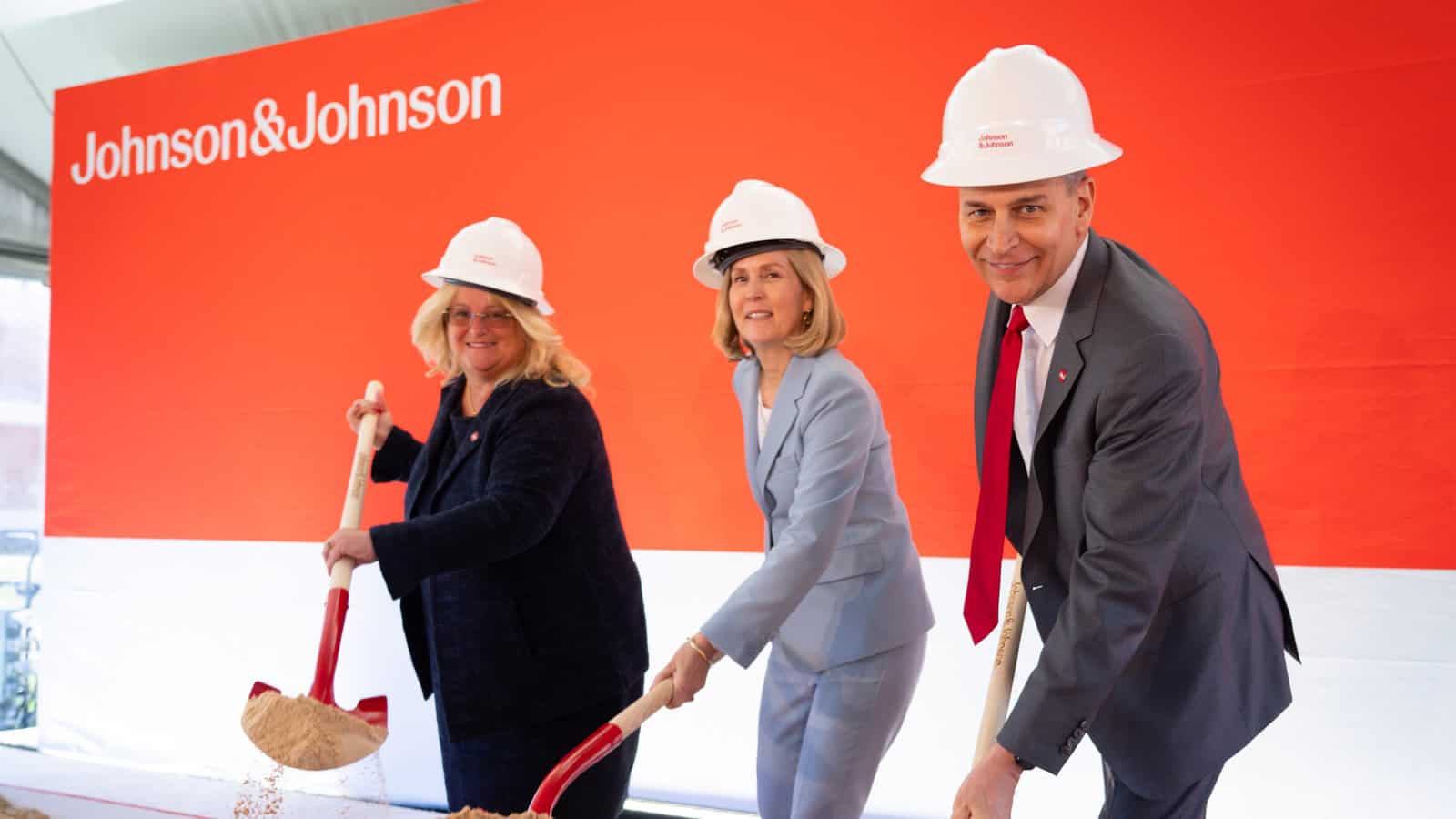
Johnson & Johnson will spend more than $55 billion on manufacturing, research and technology in the U.S. over the next four years, the biopharmaceutical company announced (Axios). These investments include a long-planned $2 billion state-of-the-art biologics facility in Wilson, North Carolina.
What’s going on: The NAM joined J&J for the groundbreaking of the 500,000-square-foot biologics manufacturing plant in Wilson on Friday.
- The White House praised the announcement and J&J’s commitment to manufacturing in America. North Carolina Gov. Josh Stein and Rep. Don Davis (D-NC) also attended the ceremony to highlight the facility’s importance to the state economy and the jobs it will bring to the state.
Other projects across the total investment will include:
- Three new advanced manufacturing sites and the expansion of several facilities in J&J’s Innovative Medicine and MedTech businesses;
- Significant spending on research-and-development infrastructure “aimed at developing lifesaving and life-changing treatments in areas such as oncology, neuroscience, immunology, cardiovascular disease and robotic surgery,” according to the company; and
- More investment aimed at speeding drug discovery and development, supporting workforce training and improving business operations.
Common goal: The Wilson site demonstrates the power of collaboration, Johnson & Johnson Executive Vice President and Chief Technical Operations & Risk Officer and NAM Board Chair Kathy Wengel said at the groundbreaking.
- “Today is a tangible example of how J&J is bringing communities, government, education and industry together to achieve the common goal of creating a future-ready workforce that is ready to tackle the toughest health challenges and achieve new breakthroughs.”
Why it’s important: The investments will strengthen not only North Carolina’s economy, but the U.S. economy as a whole, NAM President and CEO Jay Timmons said at the event.
- “Every $1 invested in manufacturing adds more than $2.60 to the economy. That’s top-of-the-line ROI for communities, neighborhoods and cities like Wilson—among the best ROIs you can get. And every new manufacturing job supports, on average, five additional jobs in other industries.”
The big picture: The new Wilson facility will generate a $3 billion impact across North Carolina in its first decade of operation.
- It will support about 5,000 jobs during construction and create more than 500 permanent positions—paying an average of $109,000 a year—in the state (WRAL News).
Certainty and predictability: These investments illustrate why policymakers must ensure that manufacturers have more certainty and predictability, not less, Timmons added.
- “Manufacturing—especially biopharmaceutical manufacturing—requires years of planning, ingenuity and investment decisions,” he said. “When there’s stability, common sense and competitive policies, companies like Johnson & Johnson can plan for the future—and plan big.”
- Timmons said that to “make more wins like this happen,” elected officials must stay focused on a comprehensive manufacturing strategy, including a “competitive tax policy, balanced regulations, prompt permitting, abundant energy and smart trade policies.”
The tax factor: J&J credits the 2017 Tax Cuts and Jobs Act with allowing it to increase its investment, according to MassDevice.
- Investments like J&J’s “are why it is critical that pro-growth provisions of the 2017 tax law be made permanent and more competitive,” Timmons wrote in a social post. “If Congress fails to act, 6 million American jobs—184,000 in North Carolina—will be wiped out. We can’t let that happen.”
- But if Congress does preserve the measures, manufacturing will win, Timmons said. “And when manufacturing wins, America wins.”
Survey: Trade Policies Shake Up Manufacturers’ Economic Outlook
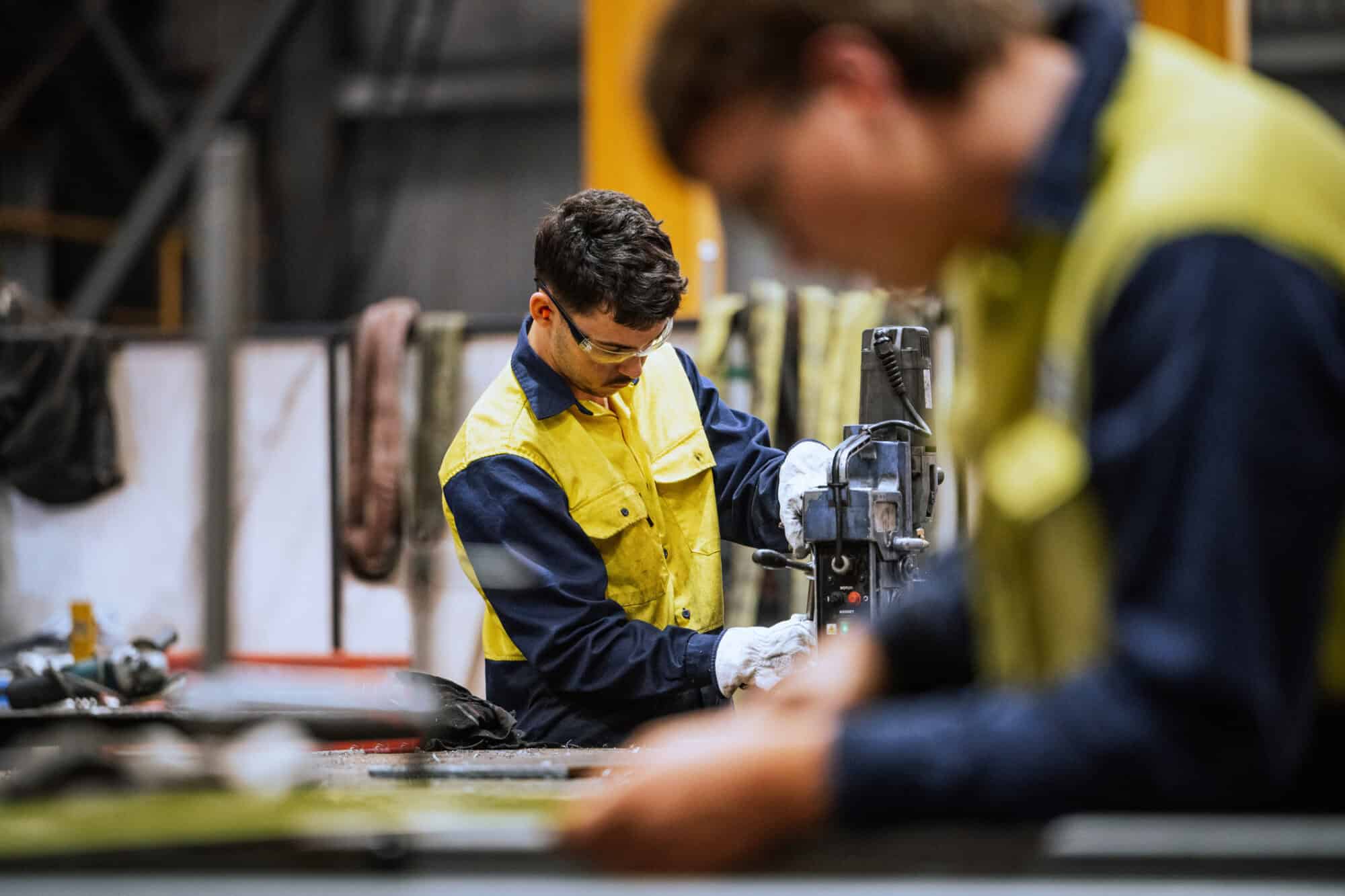
Manufacturers are increasingly worried about the future of trade and rising raw material costs, according to the Q1 2025 NAM Manufacturers’ Outlook Survey.
What’s going on: In the most recent survey, conducted from Feb. 11 to Feb. 28, trade uncertainties moved to the top of the list of manufacturers’ concerns—with 76.2% of respondents citing them as their primary worry. Increased raw material costs came in second, cited by 62.3% of those surveyed.
- In fact, manufacturers expect prices on their companies’ product lines to go up by 3.6% in the next year, an increase from 2.3% in Q4 2024 and the highest since Q3 2022, when inflation was more than 8%.
- Manufacturers also anticipate the cost of raw materials and other inputs to rise 5.5% in the next year, the highest expected rate of increase since Q2 2022, when inflation was between 8% and 9%.
- Manufacturers foresee export sales to increase just 0.1% in the next year. That’s the lowest anticipated rise since Q2 2020 at the height of the COVID-19 pandemic.
- In addition, the percentage of manufacturers with a positive outlook for their company inched down from the last quarter, to 69.7% from 70.9%.
Taxes: Manufacturers also feel strongly that their businesses need the “rocket fuel” of the tax reform extension. If Congress fails to extend pro-manufacturing provisions of the Tax Cuts and Jobs Act of 2017:
- 69.35% of respondents said they would delay capital equipment purchases;
- 45.23% would delay hiring;
- 44.72% would pause operations expansions;
- 41.71% would limit R&D investment; and
- 40.20% would curb employee wages or benefits increases.
Our take: “The pressure of increased costs, trade instability and sluggish demand is dampening the sector’s momentum, making it more difficult for manufacturers to plan, invest and hire,” NAM President and CEO Jay Timmons wrote in a social post Thursday.
- “We are calling for a comprehensive manufacturing strategy that includes a commonsense trade policy in addition to making President Trump’s 2017 tax reforms permanent and more competitive, securing regulatory certainty, expediting permitting reform to unleash American energy dominance and key manufacturing projects and increasing the talent pool.”
NAM, Allies: Reject Reintroduced PRO-Act
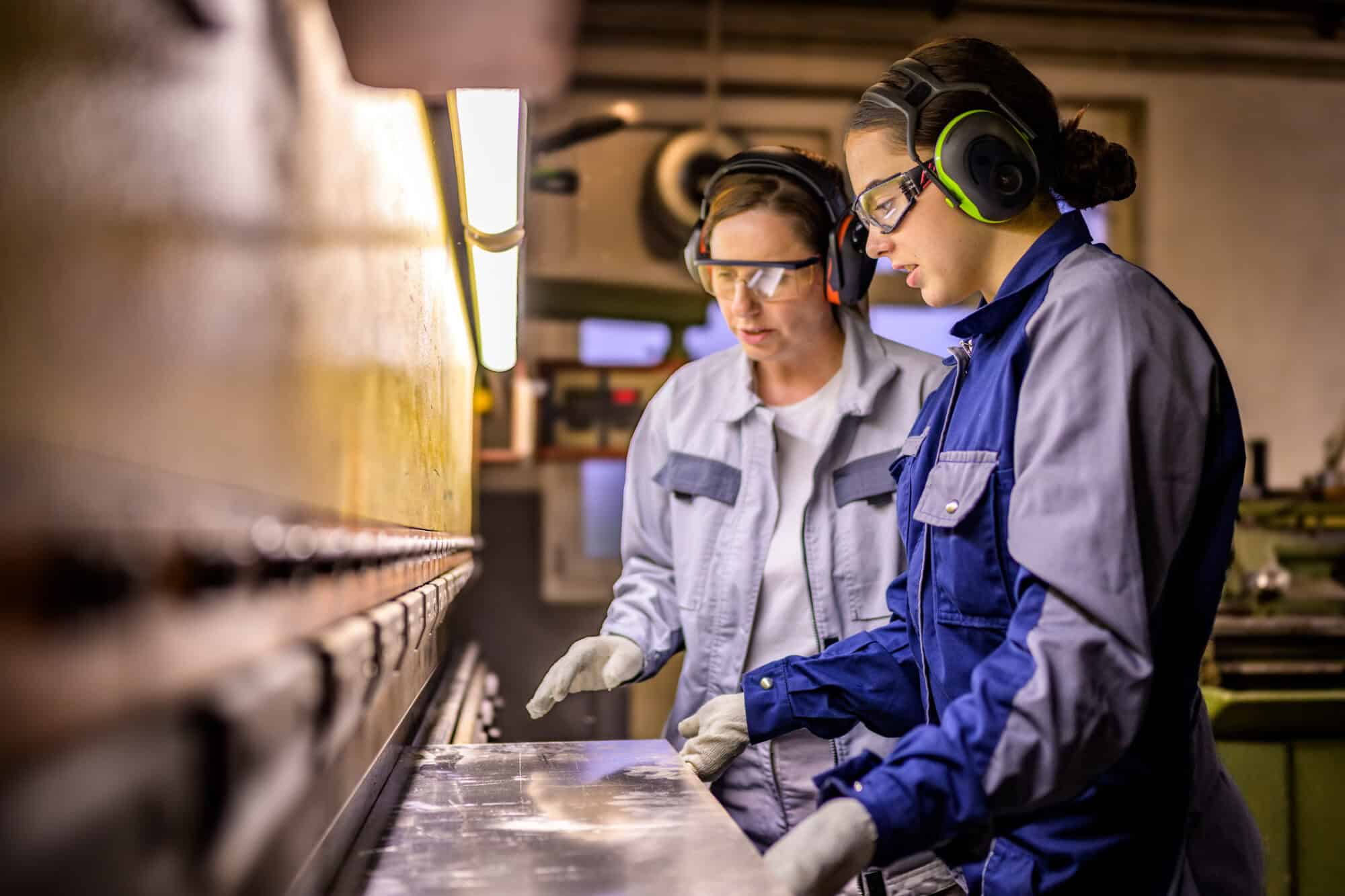
The Richard L. Trumka Protecting the Right to Organize Act, reintroduced this week, would harm manufacturers and their employees alike if it passes, the NAM and allied organizations told the Senate Tuesday.
What’s going on: The PRO Act, reintroduced Wednesday by Sen. Bernie Sanders (I-VT) and Rep. Bobby Scott (D-VA), purports to broaden labor protections for workers.
- In truth, however, it “would limit workers’ right to secret ballot union representation elections, allow government bureaucrats to unilaterally impose contracts on the private sector, trample free speech and debate, jeopardize industrial stability and limit opportunities for small businesses and entrepreneurs,” according to the Coalition for a Democratic Workplace, a group of organizations representing employers and employees. The NAM is a member.
Why it’s a problem: “The PRO Act is designed to push union representation on workers whether they want it or not,” the coalition said. The legislation would do this by:
- Limiting the right of employees to vote for or against union representation via secret ballot, instead instituting “card check”;
- Limiting employees’ right to free speech, effectively silencing debate;
- Giving the government unprecedented control over private-sector employment contracts;
- Requiring employers to give union organizers employees’ personal information without the employees’ consent;
- Eliminating right-to-work protections nationwide; and
- Allowing unions to choose a bargaining unit that maximizes its chances of winning an election instead of having the National Labor Relations Board choose a unit fairly.
The “ABC test”: In addition, the PRO Act would limit people’s opportunities for self-employment by imposing California’s failed “ABC test” on workers to determine whether they are independent contractors or employees.
- “The ABC test makes it very difficult for someone to work as an independent contractor by defining the term ‘employee’ very broadly,” the groups told the Senate. “Nationwide implementation would forcibly reclassify millions of workers who routinely say they do not want a traditional employee relationship and prize the flexibility and autonomy independent contracting provides.”
Joint employment: The measure would also replace the existing standard for determining who is a “joint employer” under federal labor law with a much broader, more vague definition.
- “The current standard focuses on whether the potential employers have direct and immediate control over employees. The PRO Act standard, on the other hand, would establish joint employment liability based on indirect or even just reserved control.”
- “It would overturn decades of established labor law and undermine nearly every contractual relationship, from the franchise model to those between contractors and subcontractors and suppliers and vendors.”
The economic impact: The PRO Act would be economically devastating to companies, workers and the country, the coalition said.
- The measure’s independent worker classification alone could cost up to $57 billion nationwide, while its joint-employer standard would cost franchises as much as $33.3 billion annually.
- This would mean more than 350,000 job losses and a 93% spike in lawsuits.
How FAME Supercharged a Mom’s Manufacturing Career
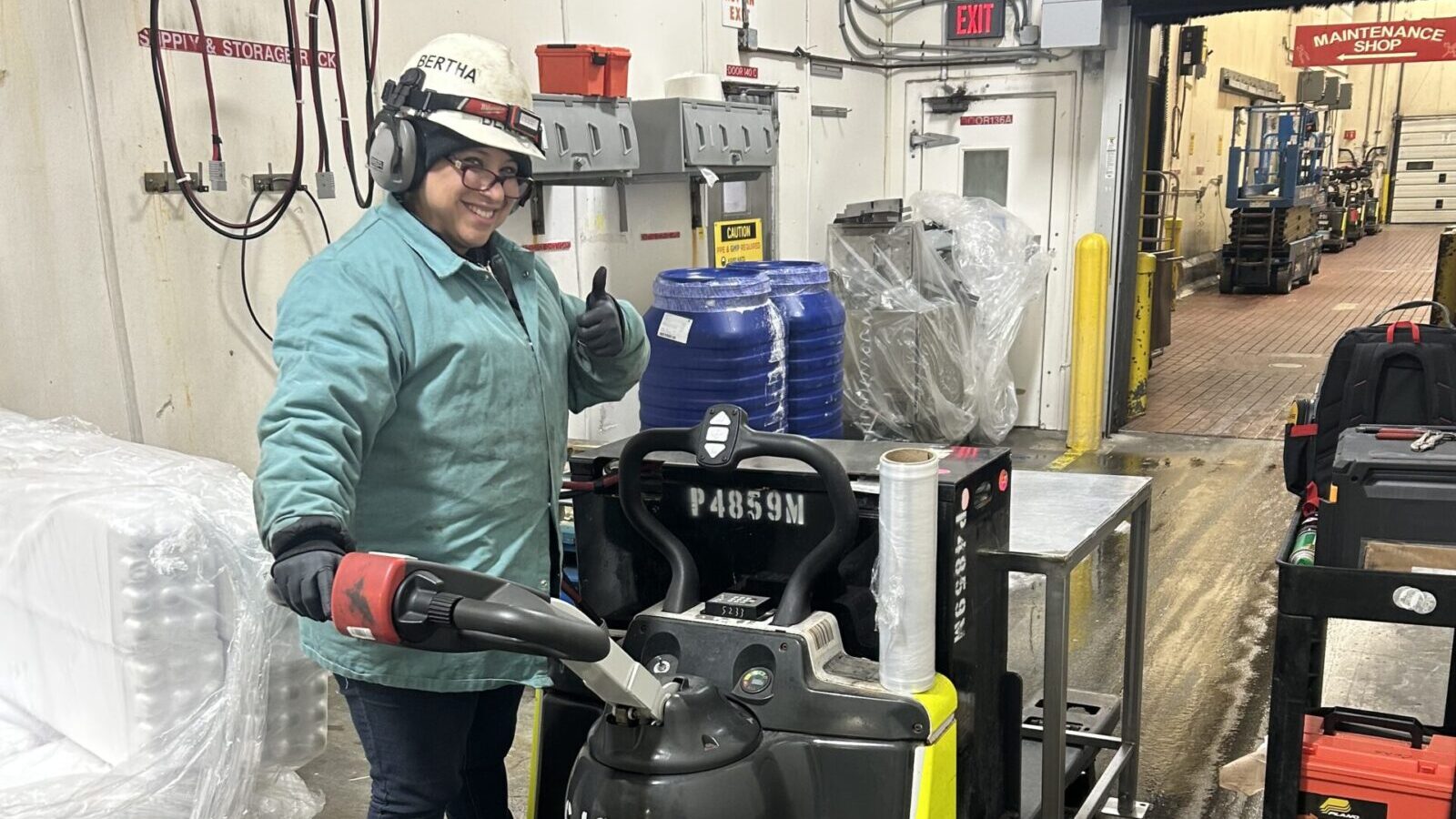
Bertha Ostiguin thought for years about going back to school. She had left the workforce to be a stay-at-home mom, and when she started working in production at H-E-B, she was still raising two boys at home. The idea of working part time while also studying and raising her kids felt daunting. But about six years into her manufacturing career at H-E-B, she joined the Advanced Manufacturing Technician program through TX FAME – Alamo in Alamo, Texas—more than 25 years after she was last in school.
“Honestly, I was scared that I wasn’t going to be able to make it,” said Ostiguin. “But it has been one of the best choices I’ve made. … I love it, I love what it does, and I cannot talk enough about it.”
The program: Founded in 2010 by Toyota and operated today by the Manufacturing Institute—the workforce development and education affiliate of the NAM—FAME aims to help students become highly skilled, sought-after workers capable of meeting the needs and challenges of the modern manufacturing sector.
- It provides current and aspiring workers with on-the-job training and classroom education, leading to an associate’s degree and the FAME certificate.
The opportunity: While Ostiguin was already several years into a manufacturing career, her experience at FAME has helped to expand her skillset, allowing her to advance her career at H-E-B and set herself up for greater success throughout her working life.
The benefits: In addition to teaching specific qualifications and in-demand technical skills, FAME helps to provide participants with the soft skills and professional behaviors they’ll need to succeed in today’s workforce, like communication. According to Ostiguin, it made her a better mentor to other people at work.
- “As I’m learning these things, I’m also teaching the young guys,” said Ostiguin. “And I would tell them, from my experience, why all this makes a difference.”
A model for others: In an industry that often has more men than women, Ostiguin saw early on that she was setting an example for others. She promised herself that she was going to finish the program—not just for herself and her sons, but for other women in manufacturing who might follow her lead. Ultimately, Ostiguin became the first woman from H-E-B to complete the FAME program, at the top of her class.
- “I started seeing the impact it was having for females, and how it wasn’t just about me anymore—it was about the bigger picture,” said Ostiguin.
A word of advice: Ostiguin is proud of what she has accomplished and encourages others to take advantage of opportunities to increase their knowledge and improve their skills.
- “Absorb as much as you can, and ask the questions that you have to ask,” said Ostiguin. “That’s the only way we’re all going to learn.”
From the MI: “FAME isn’t just transforming careers—it’s strengthening companies,” said MI President and Executive Director Carolyn Lee. “Bertha’s journey shows how investing in workforce development creates highly skilled employees who bring immediate value to their employers and themselves, creating a winning combination for long-term success.”
The State of the Manufacturing Workforce in 2025
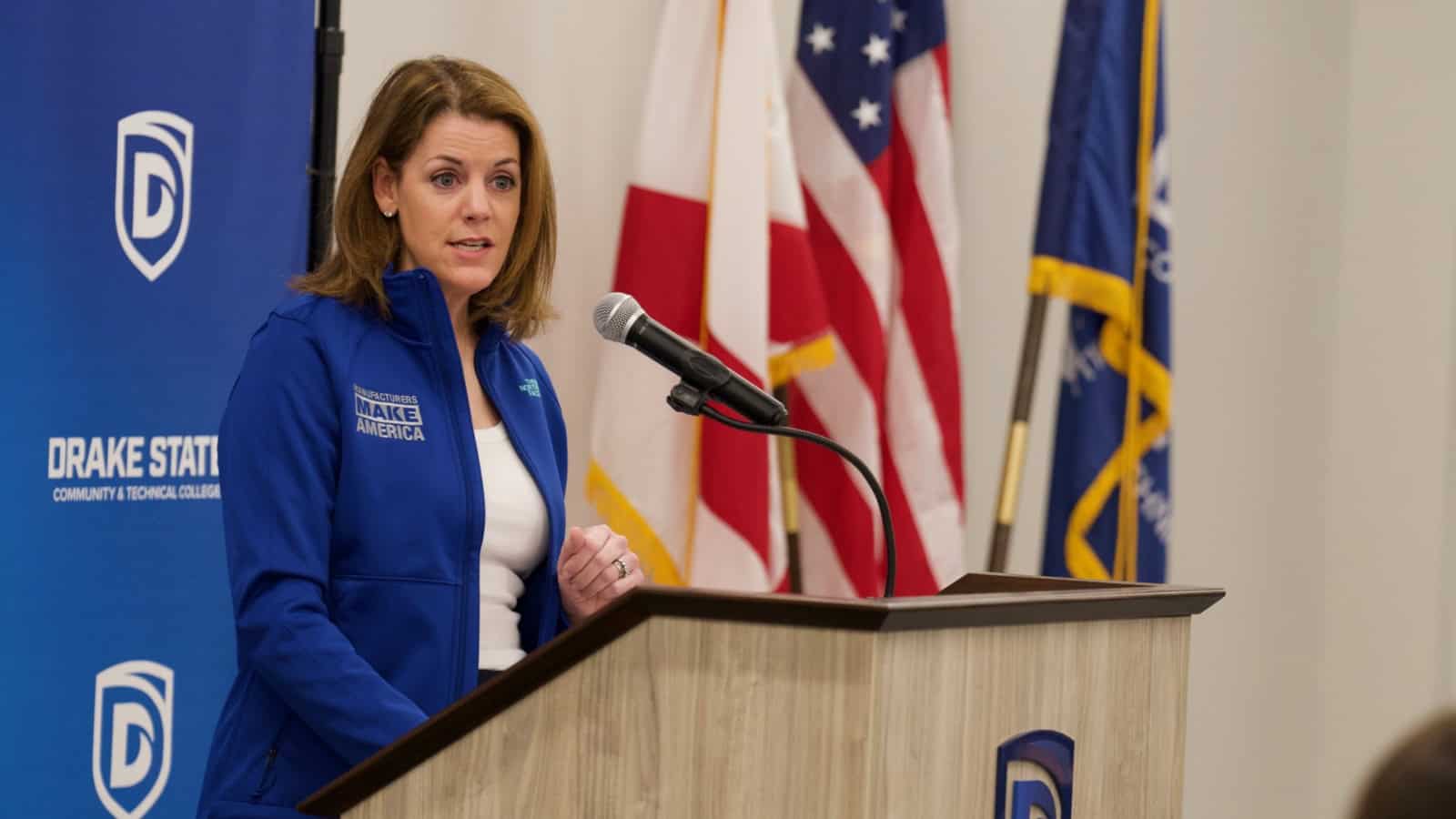
The NAM kept up a breakneck pace on the third day of its 2025 Competing to Win Tour, with the Manufacturing Institute delivering the first-ever State of the Manufacturing Workforce Address at Drake State Community and Technical College in Huntsville, Alabama, before an audience of students, faculty, manufacturers and local and state officials.
Opportunity—for all: Taking the stage to give the MI’s assessment of the manufacturing worker base in 2025, Carolyn Lee, president of the Manufacturing Institute, the NAM’s 501(c)3 workforce development and education affiliate, homed in on the theme of opportunity.
- “Manufacturing is not just about innovation and economic growth; it’s about opportunity. It’s about ensuring that every community, every aspiring maker, builder and creator—no matter their background—can have access to the skills, training and careers that will define the future.”
- But because the industry stands at a crossroads, part of that opportunity today is to help manufacturing maintain its momentum, Lee said, echoing a theme of NAM President and CEO Jay Timmons’ 2025 State of Manufacturing Address on Tuesday.
Finest hours ahead: Lee was joined at the event by Rep. Dale Strong (R-AL), who spoke about the strength of Alabama’s manufacturing sector.
- “I think we’ve proven here in Alabama, and North Alabama especially, advanced manufacturing is part of our DNA,” he said. “You look at the jobs that we’ve brought in the last 10 or 15 years. You start with GE Aviation, Polaris, Toyota Motor Manufacturing, Mazda Toyota. We’ve proven that the Alabama workforce has the ability. I think our finest hours are still ahead.”
A world-changing job: Timmons echoed that sentiment. “You’re stepping into one of the most important and innovative fields in the world,” he told the Drake State students.
- “The products, the materials, the technologies that you will help create, they won’t just be used in your hometown or even all across our country. They’re going to help change economies … They’re going to strengthen the very foundation of America’s security and prosperity.”
A shortfall: But manufacturing today faces an immense challenge, Lee told the crowd: “a structural workforce deficit.”
- “[I]f we don’t act boldly, the U.S. faces a shortfall of 1.9 million manufacturing workers by 2033; 3.8 million positions will open up, but nearly half could go unfilled. That’s not just a workforce issue—it’s an economic and national security issue.”
- That’s despite the average annual earnings—including pay and benefits—for a manufacturing employee coming in at more than $102,000.
- The dearth of workers in the sector is driven by both retirements and growth.
How to overcome it: “[W]e have to inspire more Americans to see themselves in manufacturing,” Lee said. “That starts early, with programs that spark curiosity and excitement for careers in our industry. And when I say early, I mean as young as 9 or 10 years old—because today’s 4th graders will graduate in 2033 and may be our future team members.”
- To this end, the MI partners each year with manufacturers on MFG Day, which kicks off a full month of events at which companies show young people, students and job seekers what a modern manufacturing career looks like.
- The MI, with the support of Honda, has also created a new interactive experience to interest youngsters in the industry: “Innovators Quest,” which combines elements of board games and popular fantasy and storytelling activities.
The FAME factor: Under the MI’s auspices, the Federation for Advanced Manufacturing Education USA, a workforce program started by Toyota in 2010 and entrusted to the MI in 2019, has grown considerably. (Drake State is home to one of the public–private partnership’s newest chapters.)
- FAME participants attend classes and earn while they learn in hands-on apprenticeships with manufacturers.
- The program—in which a participant can easily earn more than $30,000 over two years—has become “the gold standard for how employers, educators and communities should work together” on manufacturing workforce training, Lee said.
Other efforts: The MI helps manufacturers actively recruit groups often overlooked in manufacturing hiring initiatives: veterans, women and previously incarcerated individuals.
- The Heroes MAKE America program helps connect former members of the military with manufacturing jobs. Walmart provides crucial funding to the program; in 2022, it gave a six-figure grant to fund the development of a model that translates skills acquired in the military to ones recognized by manufacturing employers.
- The Women MAKE America Initiative is the nation’s premier program aimed at closing the gender gap in the sector.
- “The MI is helping manufacturers develop second chance hiring strategies, recognizing that talent is talent—and potential shouldn’t be wasted,” Lee said to the audience.
Working together: “As we look ahead, manufacturers, educators and policymakers must work together to strengthen our talent pipeline,” Lee and Drake State Community and Technical College President Dr. Patricia G. Sims wrote in a Thursday op-ed for the Alabama Political Reporter.
Manufacturing in Alabama: On Thursday afternoon, the NAM and MI contingent continued its manufacturing-facility tour, visiting Toyota Motor Manufacturing Alabama and Bruderer Machinery—both in Huntsville—and Milo’s Tea Company in Bessemer.
- “I plan on making my career here,” said Drew, a 2024 FAME graduate, during a discussion before a tour of the shop floor. Drew is now working as a maintenance team member at Toyota Alabama. The talk focused on how the FAME program prepared participants for a rewarding career in auto manufacturing. Toyota Alabama—2,400-plus team members strong—has created 10,000 jobs in the state.
- Lee visited Bruderer Machinery, a leading manufacturer of high-precision stamping presses that provides solutions for the automotive, aerospace and electronics industries. Bruderer is also a key supporter of the FAME apprenticeship model.
- Timmons and the rest of the NAM team finished the day at Milo’s Tea, the fastest-growing tea company in America. The family-owned business, founded by CEO Tricia Wallwork’s grandparents Milo and Bea Carlton, has won 40% of the refrigerated iced tea market share in the U.S. “This reminded me of my grandmother’s iced tea,” said Timmons. “You could see how special Milo’s is by just walking the shop floor and seeing the smiles and camaraderie.”
State of Manufacturing 2025: When Manufacturing Wins, America Wins
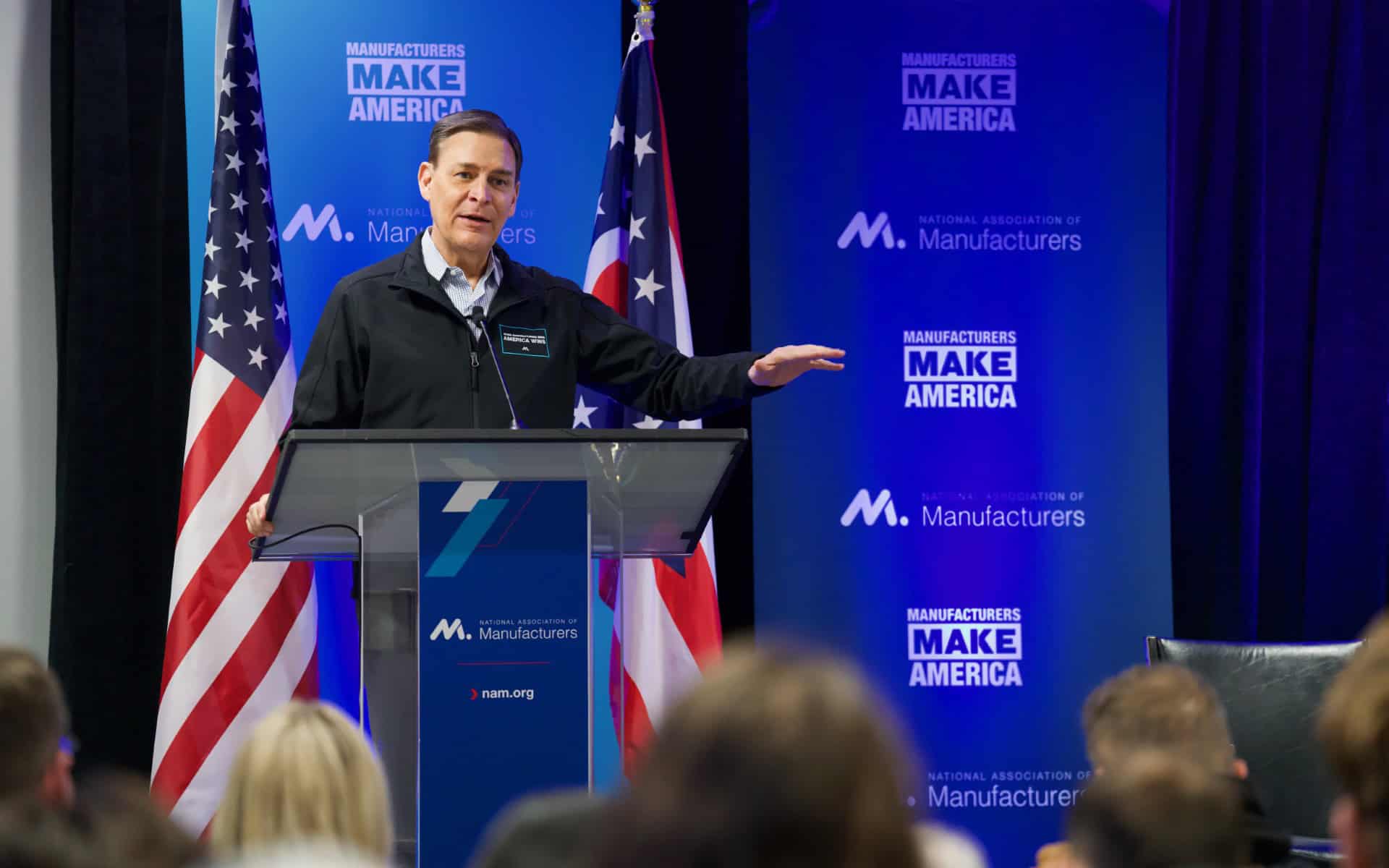
“Manufacturing in the U.S. has momentum”—and to keep it going, manufacturers will need to push, NAM President and CEO Jay Timmons said Tuesday in the NAM’s annual State of Manufacturing Address.
What’s going on: Speaking to an audience of manufacturers and congressional and state officials at Armstrong World Industries in Hilliard, Ohio, Timmons, who was joined by NAM Board Chair and Johnson & Johnson Executive Vice President and Chief Technical Operations & Risk Officer Kathy Wengel, emphasized the “defining moment” for the industry and said that for manufacturing, “what happens next really matters.”
- “Uncertainty is the enemy of investment,” he told the crowd. “Manufacturing is a capital-intensive industry. We make decisions months and years in advance. … That’s why we need certainty. We need a clear, actionable, multistep strategy from our government—one that says, ‘We want you to invest here, hire here and succeed here.’”
- Timmons’ annual speech kicked off the NAM’s 2025 Competing to Win Tour, starting with a whirlwind four-states-in-four-days tour of manufacturing facilities, schools, government offices and more.
- “In Ohio, manufacturers have thrived because our leaders have taken decisive actions to keep our industry competitive,” Ohio Manufacturers’ Association President Ryan Augsburger said at the kickoff event. But now, “manufacturers across Ohio and the nation are facing critical challenges, from tax uncertainty, project delays and workforce shortages to supply chain vulnerabilities and price pressures that threaten our ability to grow. … These issues cannot wait.”
What manufacturing needs: Certainty from the federal government should come in several forms, Timmons said, including the following:
- Preserving tax reform: The 2017 tax reforms were “rocket fuel” for manufacturing in America—but key provisions have expired and others are scheduled to sunset. Congress must bring them back and improve and extend the package. “Every day that Congress delays because of process and politics, manufacturers face rising uncertainty, delayed investments and fewer jobs,” said Timmons.
- Regulatory clarity and consistency: Manufacturers today spend a total of $350 billion just to comply with regulations. “Commonsense regulation is critical to American manufacturers to continue to innovate, to compete against foreign manufacturers and to improve the lives of American citizens,” Austin So, general counsel, head of government relations and chief sustainability officer for Armstrong World Industries, told the crowd.
- Permitting reform: President Trump’s lifting of the liquefied natural gas export permit ban was a start, but to reach our full potential as energy leader, we must require “federal agencies to make faster decisions and reduc[e] baseless litigation,” said Timmons.
- Energy dominance: “America should be the undisputed leader in energy production and innovation. But … we are seeing opportunities for energy dominance fade in the face of a permitting process that takes 80% longer than other major, developed nations,” Timmons said, adding that we must cut red tape, require federal agencies to make faster decisions and reduce meritless litigation.
- Workforce strategy: By 2033, manufacturing faces a shortfall of 1.9 million manufacturing employees, Timmons said. To fill those positions, the sector needs a “real workforce strategy,” one that includes apprenticeships, training programs and public–private partnerships.
- Commonsense trade policy: If President Trump continues to use tariffs, “we need a commonsense policy … that provides manufacturers with the certainty to invest” and “a clear runway to adjust,” according to Timmons.
State of manufacturing: “Manufacturing in the United States is moving forward,” Timmons said. “Like a press at full speed, like a production line firing on all cylinders, like the workers who show up before dawn and leave long after the job is done—manufacturing in the United States is driving us forward.” And Timmons added that now it’s time “to make America Great for Manufacturing Again.”
On the move: Following the speech, Timmons, Wengel and Augsburger joined state lawmakers, including state Sens. Kristina Roegner and Andrew Brenner, and local business leaders for a visit to the Ohio Statehouse for an event focused on the importance of tax reform for Ohio and its manufacturing sector.
- A recent NAM study found that, if key provisions of tax reform are allowed to expire, Ohio would risk losing 208,000 jobs and $18.9 billion in wages.
What’s at stake: Tax reform was transformational for Humtown Products, the Columbiana, Ohio–based family-owned sand cores and molds manufacturer, President and CEO Mark Lamoncha told the audience at the Ohio Statehouse tax event.
- “We have been at the forefront of 3D-printed manufacturing for years and have invested significantly in the machinery and equipment required, including the purchase of 3D printers—one of which can easily cost over $1 million,” he said.
- “Since the 2017 tax reform, Humtown has invested over $9 million in capital expenditures related to 3D printing and averages around $100,000 annually in R&D costs. Under the 2017 tax reform, we were able to deduct 100% of those costs, generating around $1.6 million in accelerated tax savings.”
- “That amount alone allowed us to purchase another 3D printer, fueling continued growth. That’s what tax certainty allowed us to do. But right now, that certainty is slipping away. As these provisions begin to expire, our tax burden is increasing.”
Creators Wanted: The group also fit in a stop at Columbus State Community College, which serves approximately 41,000 students, to visit with students in the semiconductor and mechanical drive classes.
The last word: The NAM recently “stood shoulder-to-shoulder with congressional leaders—delivering a clear, urgent message on tax reform” and is “driving the agenda on regulatory certainty, on energy dominance, on permitting reform, health care and workforce development,” Wengel told the audience. “The NAM is not waiting for Washington to act; we are making sure Washington acts for you, for manufacturers.”
- Added NAM Executive Vice President Erin Streeter: “The NAM is on [these issues], and we’re going to keep fighting, as we do every day with the right leaders, the right strategies and the right vision for the future.”
The New American Model for Manufacturing Skills Training
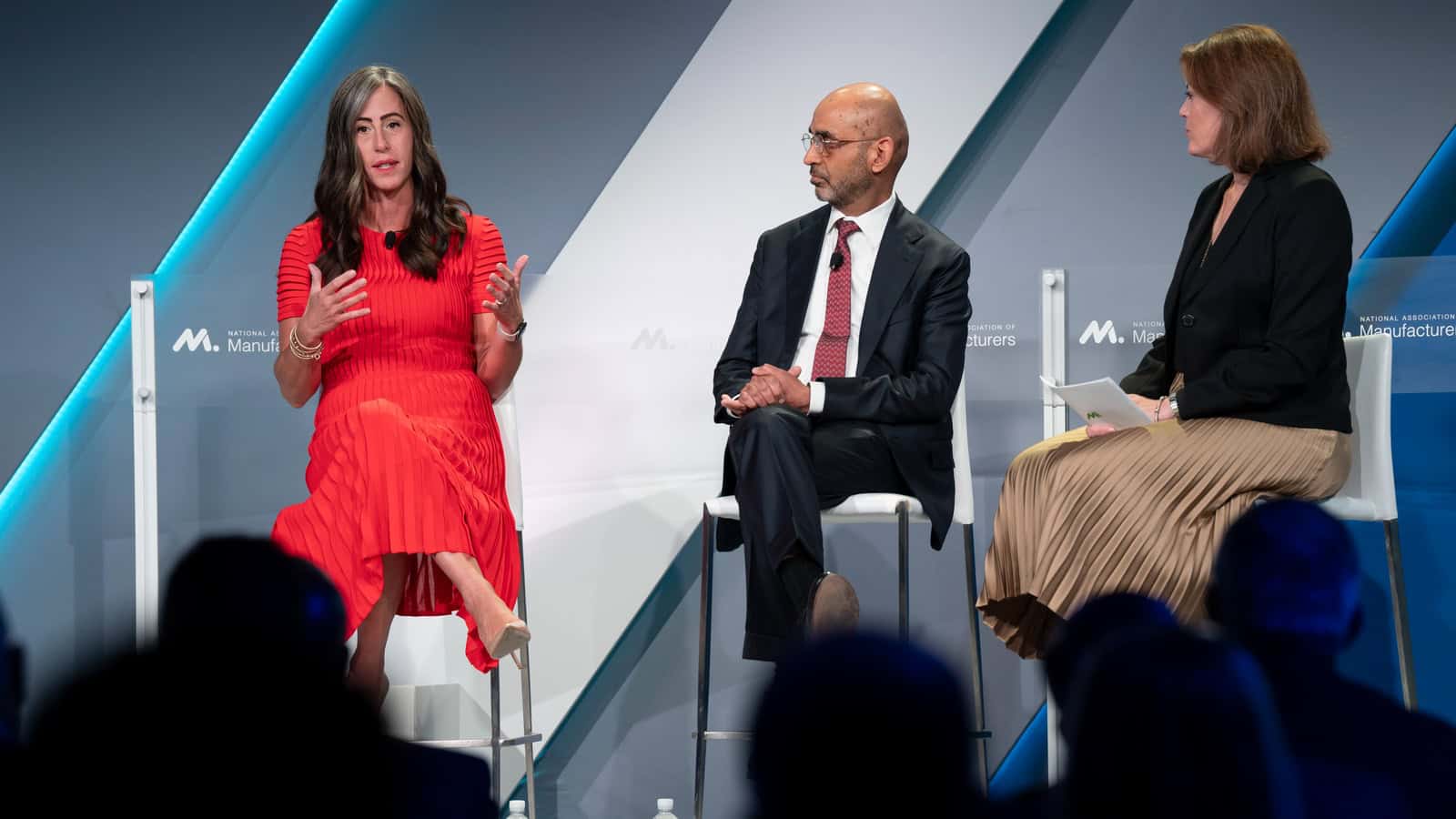
FAME USA is revitalizing the manufacturing workforce with its global-best model of on-the-job training combined with classroom education.
Created in 2010 by Toyota, the program was entrusted to the Manufacturing Institute, the NAM’s workforce development and education affiliate, in 2019. Since then, it has grown enormously, almost doubling in size under the MI’s stewardship.
The past five years: FAME has scaled to more than 45 chapters across 16 states since the MI took over stewardship of the initiative—up from 20 chapters in 9 states. Employer support has grown, too, from 220 manufacturers to nearly 500 today.
- As a result of this growth, FAME boasts more than 1,300 enrolled students, 2,200 graduates and an impressive 90% employment rate upon graduation.
- And there’s much more coming soon: FAME plans to add eight more chapters by the beginning of the 2026 school year.
Working with manufacturers: FAME offers two options for manufacturers looking for skilled workers.
- They can join an existing FAME chapter and benefit from the established employer collaborative. Or in locations where FAME doesn’t already have a presence or where the companies are building new facilities or undertaking large expansions, they can initiate a new FAME chapter to meet their greater need for talent.
General Mills: The food manufacturer was searching for more skilled workers for its Hannibal, Missouri, facility when it learned of FAME. In 2024, General Mills joined the Great River chapter in Illinois, which crosses state lines into Missouri, and committed to sponsoring five students.
- “We want the best talent at our manufacturing facilities, and we know that there’s tremendous talent in our communities. Partnering with FAME allows us to harness the talent in our local communities and get candidates excited about building a career with General Mills,” said Becky Crane, vice president, manufacturing & engineering at General Mills, during a recent panel discussion highlighting FAME.
Novelis: The leading producer of flat-rolled aluminum products and the world’s largest recycler of aluminum first partnered with FAME in 2015 through joint venture Logan Aluminum in Kentucky, as part of the SKY FAME chapter.
- “FAME provides an excellent forum for manufacturing companies in the same region to work together on providing the necessary exposure and skills to our future workforce,” said Dev Ahuja, executive vice president and chief financial officer at Novelis.
- Approximately 40 employees at Novelis are FAME graduates, and the company expects this number to grow as it expands participation across states.
- Novelis has also found success with FAME during greenfield projects. The Novelis plant in Guthrie, Kentucky, began partnering with the HOPFAME chapter in 2018 during construction of its new facility, and the company is now a founding employer of the FAME chapter in Bay Minette, Alabama, where it is constructing an aluminum plant that will create up to 1,000 jobs.
The bottom line: “FAME is not just a training program; it’s a transformative solution for employers looking to cultivate a skilled workforce that meets their specific needs. By engaging with FAME, companies can tap into local talent, foster economic growth and build a sustainable pipeline of skilled workers,” said MI President and Executive Director Carolyn Lee.
- “We encourage employers to join this collaborative effort—together, we can empower our communities and ensure the future of manufacturing is in America.”
Get involved: Learn more here about FAME and how you can tap into this global-best training resource. And don’t forget to follow FAME USA on LinkedIn.
